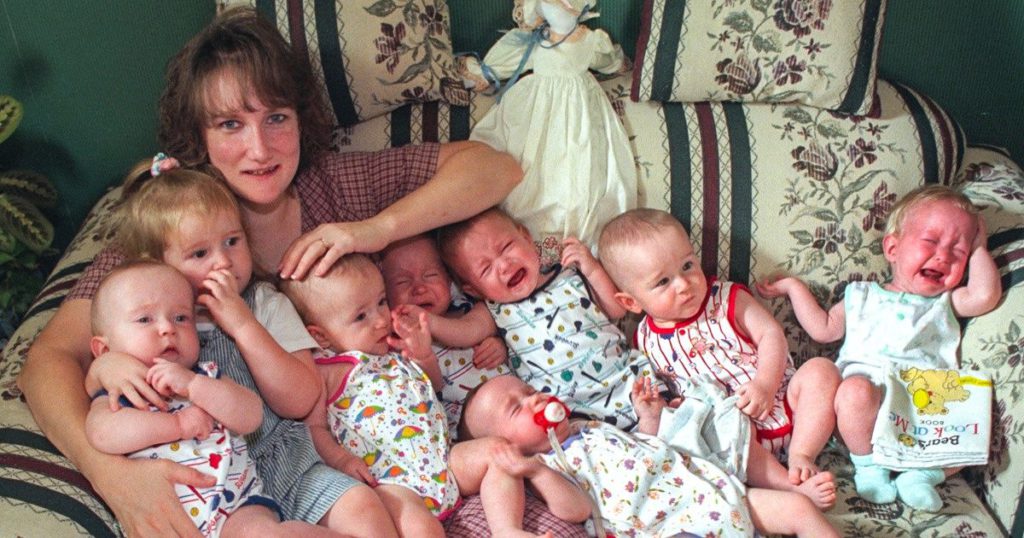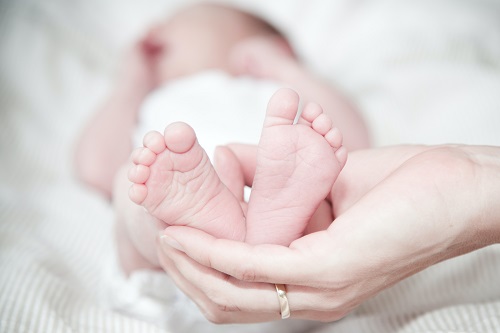The advent of fertility drugs and in vitro has created families where once there was only a dream. Twins and even triplets have become commonplace, as multiple implants typically mean multiple babies. But even in these days of daily fertility miracles, the really big multiples, dubbed Super Twins, still make the news. So what are the records for the most babies in one birth?

 Seventh Heaven, The First Surviving Set of Septuplets
Seventh Heaven, The First Surviving Set of Septuplets

The first known surviving set of healthy septuplets was born in the U.S. to the McCaugheys in November of 1997. The four boys and three girls ranged in size from a relatively healthy 3 pounds 4 ounces to only 15 ounces. Although several of the babies experienced medical challenges, and two have cerebral palsy, all seven not only survived but thrived. Ironically, Joel, the tiniest of the babies, does not have lasting medical issues.
Eight is Enough, First Set Of Octuplets
In 1998, the U.S.’s first set of octuplets was born in Houston, Texas. The first of the Chukwu Octuplets arrived on December 8, nearly 15 weeks premature, and weighed 1 pound, 6 ounces. The remainder of the babies were delivered about two weeks later by Caesarean section. Birth weights ranged from 2 pounds, 2 ounces to 10.3 ounces. The tiniest of them, a girl, lived for only one week after birth. The rest of the babies thrived, and were at last report in 2005 happy and healthy children.
Beyond Survival, Nonuplets and Beyond
In 1999 a Malaysian mother gave birth to nine living babies, officially the most babies in one birth. Sadly, none of the 5 boys and 4 girls survived beyond 6 hours. An earlier nonutuplet pregnancy in Australia had resulted in two stillborns. Six babies died shortly after birth. One baby, a boy, survived for 6 days.
An Argentinean woman, who was pregnant with 12 babies holds the world record for a natural pregnancy (without fertility treatment). Unfortunately, the pregnancy was lost before any of the babies were viable.
The official record for the most babies in pregnancy (although not the most babies in one birth) was set in 1971, when an Italian woman on fertility treatment conceived 15 babies. None of the 10 girls or 5 boys survived birth.
Not All is Rosy in Multiple Births

Families need not fear a repeat of the tragedy of the Dionne Quintuplets, who were born in 1934. They were taken by the Canadian government and displayed as a kind of living museum exhibit. However, there are other challenges with multiple births. Medical professionals are looking at the health issues these pregnancies bring, including prematurity, lifelong medical concerns, and the severe health risks to the mother. Several techniques are developed to reduce the need for multiple implants. This will hopefully reduce the number of large multiple births.

